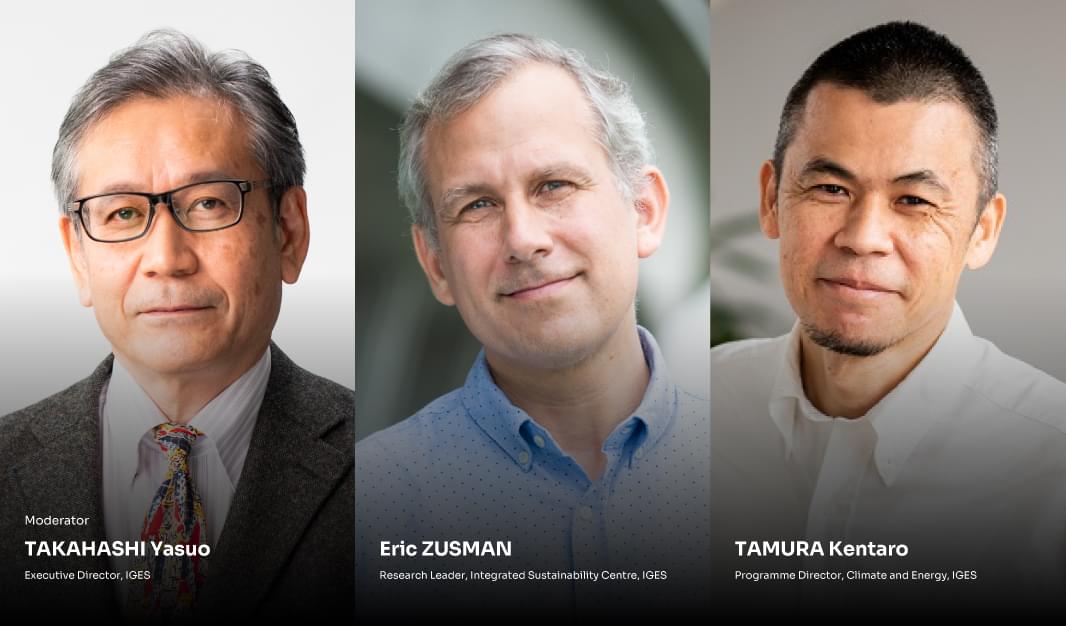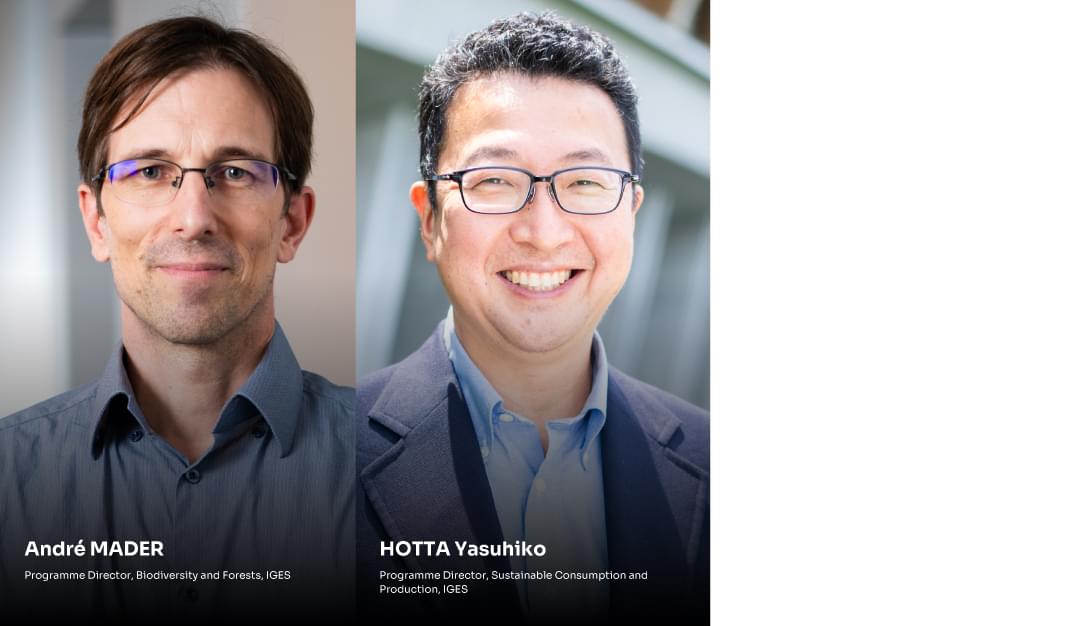Summary
Following the discussions in Plenary Session 1, this session presented an overview of IGES research activities focusing on the three transformative dynamics (integration, inclusion, and localisation), featuring discussions on specific approaches and research issues for transitioning to a sustainable society.
First, the moderator outlined the common focal areas where IGES research units are working together. This was followed by presentations by IGES research leaders on entry points or concrete solutions to climate change, biodiversity loss, challenges in mainstreaming circular economy, and the SDGs more broadly. Regarding facilitating the implementation of the SDGs, the first speaker spoke on the theme of moving “from small changes to big changes” and introduced initiatives in the ASEAN region to integrate climate change and air pollution, as well as a project on synergies between climate change action and health in the Hachinohe region in Japan. He emphasised that accumulating and sharing local knowledge can help to open paths for significant changes. Regarding climate change, the second speaker elaborated on the IGES 1.5°C Roadmap, an action plan for Japan to achieve more ambitious emission reductions and a prosperous, vibrant society. He also referred to efforts to integrate mitigation and adaptation into the policies of Asian countries and an international platform for information sharing on adaptation. He also introduced the practice of research designed for social change. In the area of biodiversity, the third speaker stated that integrated research is being conducted at the international, national, and local levels on the complex interaction of five drivers: land-use change, alien species, overfishing, pollution, and climate change. He referred to the goals of the Kunming– Montreal Global Biodiversity Framework, including conservation and benefit sharing, and emphasized the importance of assessment, planning, and reporting. Regarding the circular economy, the fourth speaker noted that one entry point is to develop an international convention on plastic pollution, which could lead to an integrated approach, as plastics are relevant across sectors. He introduced a waste management project in Da Nang, Vietnam, and the 1.5°C lifestyle project targeting various cities, as research activities are being developed to operationalise international agreements at the regional, national, and municipal levels and to reflect issues at each level in setting international targets.
In response to the above presentations, the fifth speaker emphasised that transformative dynamics are an entry point to the major goal of improved wellbeing, which is also an important issue for corporate management and Japan’s next Basic Environment plan. She also pointed out that the policymaking process and policy evaluation are important in implementing integrated solutions and that there can be trade-offs and synergies. The leaders expressed their views on the importance of analysing impediments to implementation, raising awareness and recognition of actors, and working with stakeholders on appropriate prioritisation based on scientific data. The fifth speaker summarised the need for society as a whole to use science-based evidence as a solid base for social change and expressed hope that IGES would play a role as a change agent that leads change through science-based policy recommendations.
Key Messages- Integrating with socioeconomic issues is essential in solving environmental challenges and requires social transformation. The dynamics of change will lead to improved wellbeing, which is a key issue in corporate management and the next environmental master plan.
- The challenge is how to implement integrated solutions. It is important to analyse the impediments to implementation, raise awareness, recognise the actors, and consider appropriate prioritisation based on scientific data together with stakeholders, which will also help overcome trade-offs.
- There is a need for society as a whole to scientifically establish foundations for transforming society for the better.









-min.JPG)
-min.JPG)
-min.JPG)
-min.JPG)
-min.JPG)
-min.JPG)
-min.JPG)
-min.JPG)
-min.JPG)
-min.JPG)
-min.JPG)
-min.jpg)